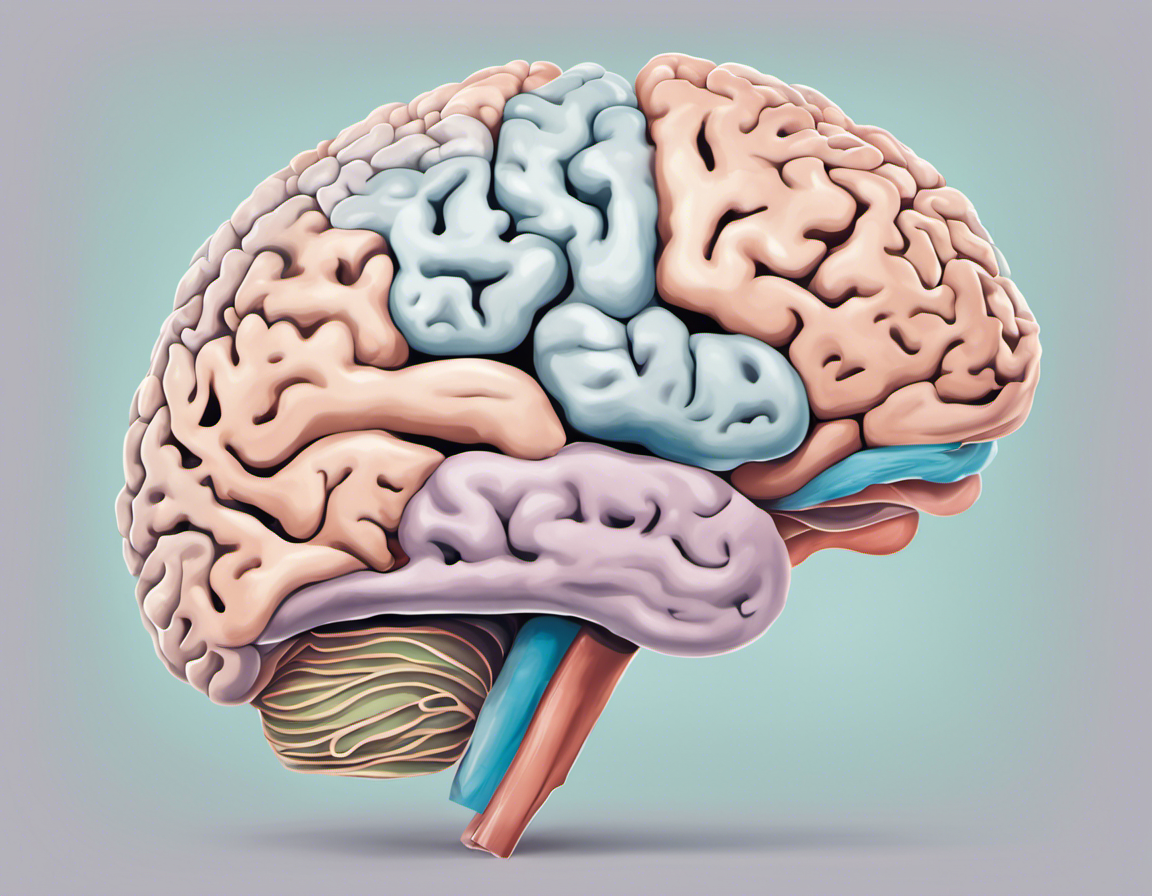Unlocking Potential: Navigating Adult ADHD and Harnessing Strengths

Can you imagine going through life feeling chronically disorganized, unable to focus, and struggling with impulsivity or hyperactivity? These challenges are a daily reality for millions of adults living with Attention-Deficit/Hyperactivity Disorder (ADHD). Many associate ADHD with childhood, not realizing it’s lifelong for many.
This article will probe into the often misunderstood world of adult ADHD. We’ll shed light on the common symptoms and complications that adults with ADHD experience, particularly around organizational skills, which are central to both personal and professional life.
We will also explore how technology has influenced our management strategies for ADHD symptoms. With rapid progress in digital healthcare technologies, solutions are now becoming available at our fingertips. But how effective are they?
Then, we will delve into arguably one of the hardest aspects touched by ADHD – maintaining relationships and mental health. Interactions in our social environment can become charged if not understood and managed correctly with ADHD.
We then turn to understand the various therapeutic interventions and medications for managing ADHD. Amid all the popular perceptions about ADHD medications, we’ll examine the evidence to decide what works best.
We’ll also navigate the challenges adults with ADHD face in their work lives. Offering concrete strategies and accommodations can transform these challenges into opportunities for growth.
Finally, this article opens up the path for future research directions. Despite advancements, there are gaps in our understanding of adult ADHD that need urgent attention from researchers.
Moreover, it would be remiss if it only portrayed one side of the coin– challenges and struggles. Hence, an integral part of our discussion will be about strengths — harnessing and channeling them productively to unlock potential.
With insights from experts and personal narratives from individuals who live with ADHD, our aim is to provide you with a comprehensive understanding of adult ADHD. Join us as we unravel a journey colored with both hurdles and wins, which may perhaps mirror your own or offer valuable insights into the experiences of your loved ones living with ADHD.
Understanding ADHD in Adults
Attention Deficit Hyperactivity Disorder (ADHD) is often associated with children, but the disorder doesn’t magically disappear when these children grow up. In fact, adult ADHD is a significant mental health concern that tends to get overlooked. A deep dive into this complex neurological disorder reveals its profound impact on an individual’s brain functionality and daily life activities and relationships. As adult ADHD can be masked by various attributes such as intelligence or work ethic, it usually goes undiagnosed or misunderstood.
Identifying Common Symptoms and Challenges
Wrongly mistaken for just laziness or lack of effort, adult ADHD manifests itself through diverse mediums. Hallmark indicators include overwhelming impulsivity, lack of focus, severe restlessness, and disorganized thinking. Difficulty planning, prioritizing tasks, and adhering to societal norms further complicates things. Although not seemingly dangerous or debilitating on the surface, these issues can lead to serious complications if left unchecked. Interpreting these signs from a knowledgeable perspective is crucial for effectively diagnosing and managing the disorder.
How ADHD Impacts Organizational Skills
A common symptom noted in adults with ADHD is their struggle with executive function skills, which are fundamental to staying organized. They may face challenges with keeping track of tasks, prioritizing them effectively, managing time efficiently, and maintaining orderliness. This inability extends beyond just a messy room or an untidy work desk. It infiltrates every aspect of life – from misplacing keys to forgetting appointments – causing stress and strain on both personal and professional fronts.
Role of Technology in Managing ADHD symptoms
Technology comes as a beacon of hope for those wrestling with adult ADHD. Digital tools and applications designed specifically to address ADHD-related challenges offer practical solutions that lighten the burden. These technological aids range from reminder apps, note-taking software, and tracking tools to mindfulness apps – all aimed at improving focus, enhancing productivity, and streamlining everyday tasks. By incorporating technology into the management approach, adults grappling with ADHD can significantly improve their quality of life and harness their innate potential to the fullest. Yet, the effectiveness of these tools can vary, and therefore, they should complement, not replace, therapeutic interventions and medication.
Managing Relationships with ADHD
Adults diagnosed with ADHD often face significant hurdles in maintaining successful relationships. This can be attributed to their challenges regulating emotions, poor memory recollection, and difficulty focusing on conversations. However, one can attain fulfilling relationships with conscious effort, patience, and the use of technology. Implementing strategies such as consistent communication and setting boundaries can play a decisive role in creating healthy relationships. Digital tools like reminder applications can also assist in remembering important dates and commitments, reducing potential conflicts.
ADHD and Mental Health: Anxiety and Depression
ADHD doesn’t stand alone; it is frequently accompanied by co-existing mental health issues like anxiety and depression. This association is unsurprising as the perpetual cycle of forgetfulness, low self-esteem, and struggle with organization among adults with ADHD leads to heightened stress levels. Mindfulness apps and cognitive-behavioral approaches have shown promise in managing these comorbid conditions by promoting better-coping strategies and boosting self-esteem.
Therapies and Medication for ADHD
While technology offers practical assistance for adults with ADHD, it should be considered an adjunct tool, not a complete solution. Cognitive Behavioral Therapy (CBT) is a proven therapeutic intervention for managing ADHD symptoms such as disorganization, difficulty regulating emotions, or impulsive behaviors. Similarly, medication plays a crucial part in controlling the core symptoms of ADHD. Many adults with ADHD have improved their concentration levels, impulse control, and organizational abilities after starting medication. It’s crucial to remember that therapeutic intervention and medication must be personalized based on the individual’s needs.
ADHD in the Workplace: Strategies and Accommodations
Navigating through work-life poses extra challenges for adults with ADHD due to task prioritization issues, miscommunication, or missing deadlines. Organizations can make accommodations by providing a structured environment with clear expectations offering flexible working hours or work styles while encouraging regular breaks for rejuvenation. Employing digital tools for managing tasks and deadlines can also facilitate smooth functioning. When effectively managed, ADHD can unleash creative thinking and problem-solving abilities among adults, contributing to workplace diversity.
Future Research Directions on ADHD in Adults
While significant strides have been made in understanding adult ADHD, much more research is warranted to unfold the complex nature of this disorder. Future research should aim to develop better diagnostic tools and tailored management strategies. Moreover, investigating how the strengths of individuals with ADHD, such as creativity, innovative thinking, and heightened empathy, can be harnessed might pave the way for holistic ADHD management.
Conclusion
Adult ADHD influences various aspects of our lives, significantly impacting relationships, work-life, and overall mental health. Navigating this complex world is eased through the utilization of technology and therapeutic interventions, empowering individuals to mitigate symptoms in a tailor-fit manner. But, as highlighted, this domain requires more intensive exploration to formulate precise diagnostic tools and define strategies that suit the individual’s needs.
Moreover, embracing the unique strengths of adults with ADHD can create a holistic management approach. Personal narratives and expert insights have given us an in-depth understanding and empathy for these experiences—truly a testament to resilience and adaptability. We encourage further research and negotiation of accommodations, particularly digital tools, to ensure smooth functioning both in relationships and workplaces.
In conclusion, we implore you to take another step into this remarkable research domain. How can we further harness the strengths of individuals with ADHD? What role does technology play in improving their lives? And ultimately, how can we create better social spaces that accommodate and celebrate their uniqueness? Dive deeper into these questions and contribute to the illuminating exploration of adult ADHD.




Comments